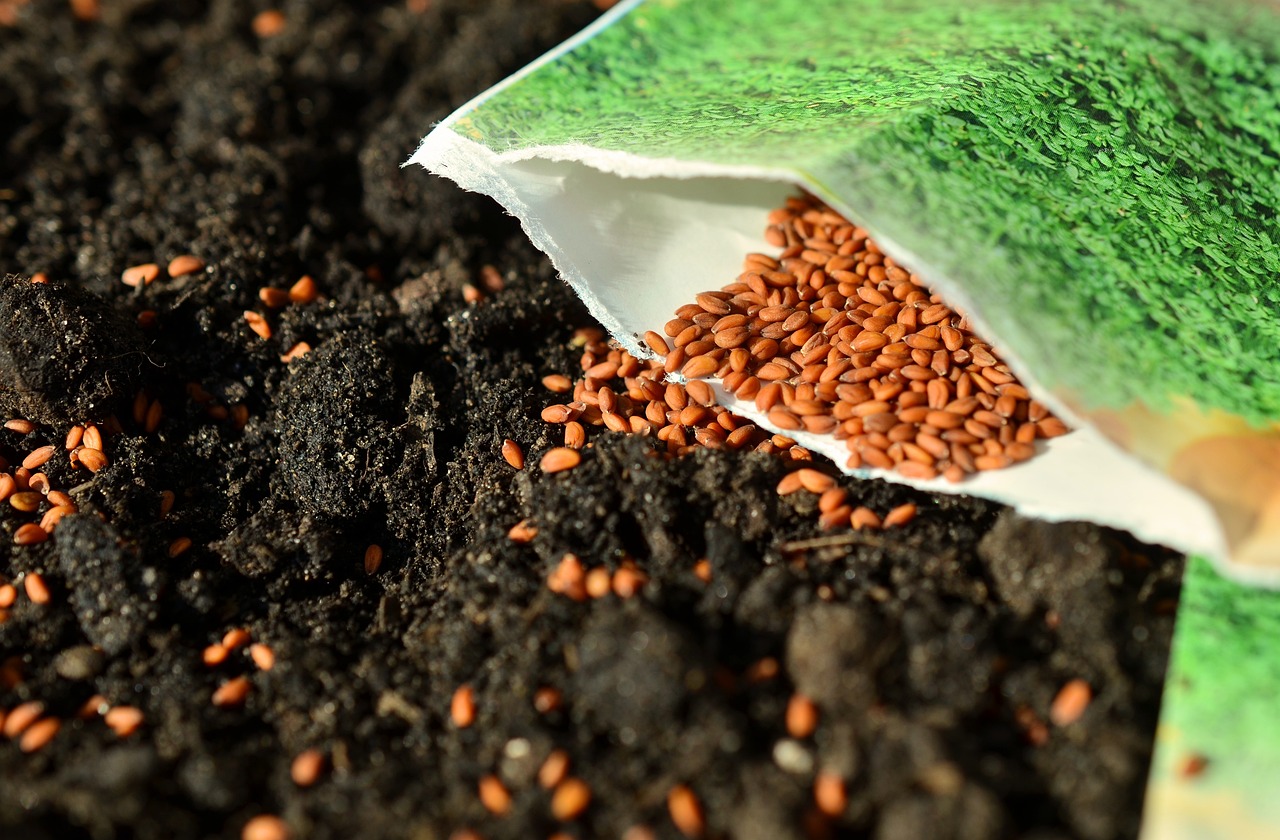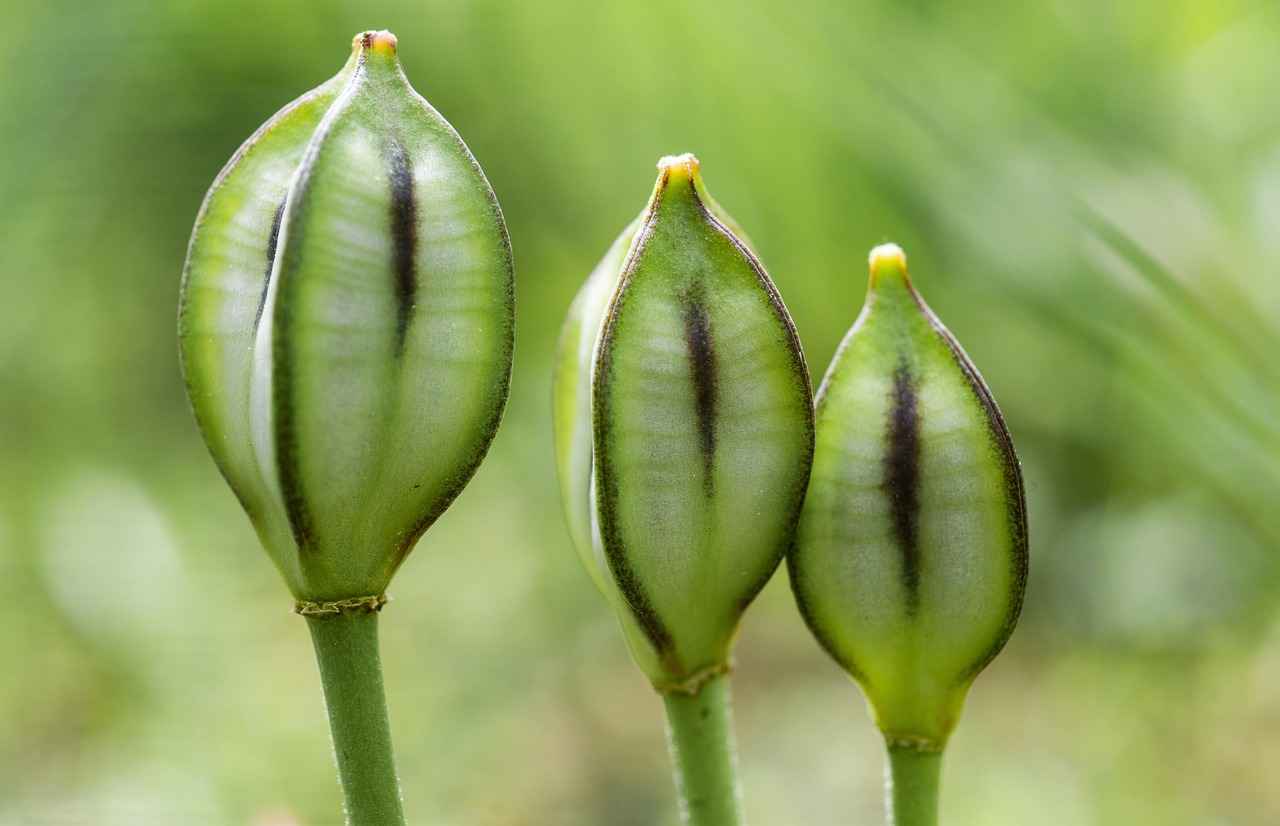Chia seeds have recently surged in popularity, often labeled as a superfood. But what are they, and why should you consider adding them to your diet? This article delves into the nutritional benefits, culinary uses, and potential drawbacks of chia seeds, providing you with the information you need to make informed dietary choices.
Chia seeds are a powerhouse of essential nutrients. They are particularly rich in:
- Omega-3 fatty acids: Vital for heart health.
- Fiber: Aids in digestion and promotes satiety.
- Protein: Supports muscle health and repair.
- Vitamins and minerals: Including calcium, magnesium, and phosphorus.
The health benefits of chia seeds are extensive. Their rich nutrient profile can contribute to:
- Weight management: Chia seeds can absorb up to 12 times their weight in water, expanding in your stomach and promoting a feeling of fullness.
- Improved heart health: The omega-3 fatty acids found in chia seeds can help reduce inflammation and lower cholesterol levels.
- Enhanced digestive health: The high fiber content supports regular bowel movements and gut health.
Incorporating chia seeds into your meals is simple and versatile. Consider these ideas:
- Add them to smoothies for a nutritional boost.
- Mix them into yogurt or oatmeal.
- Use them in baking recipes, such as muffins or energy bars.
While chia seeds offer numerous benefits, they may also cause some side effects. It’s essential to be aware of the following:
- Digestive issues: Overconsumption can lead to bloating or discomfort, especially if not hydrated properly.
- Allergic reactions: Though rare, some individuals may be allergic to chia seeds.
To maintain their freshness and nutritional value, store chia seeds in a cool, dark place in an airtight container. This helps prevent oxidation and prolongs shelf life.
Chia seeds can be used in a variety of delicious recipes. Some popular options include:
- Chia pudding: Mix chia seeds with milk or a milk substitute and let them soak overnight.
- Chia energy bars: Combine chia seeds with nuts, oats, and natural sweeteners for a healthy snack.
- Chia smoothies: Blend with fruits and vegetables for a nutrient-packed drink.
Chia seeds are widely available in grocery stores, health food shops, and online retailers. When purchasing, opt for high-quality seeds to ensure maximum nutritional benefits.
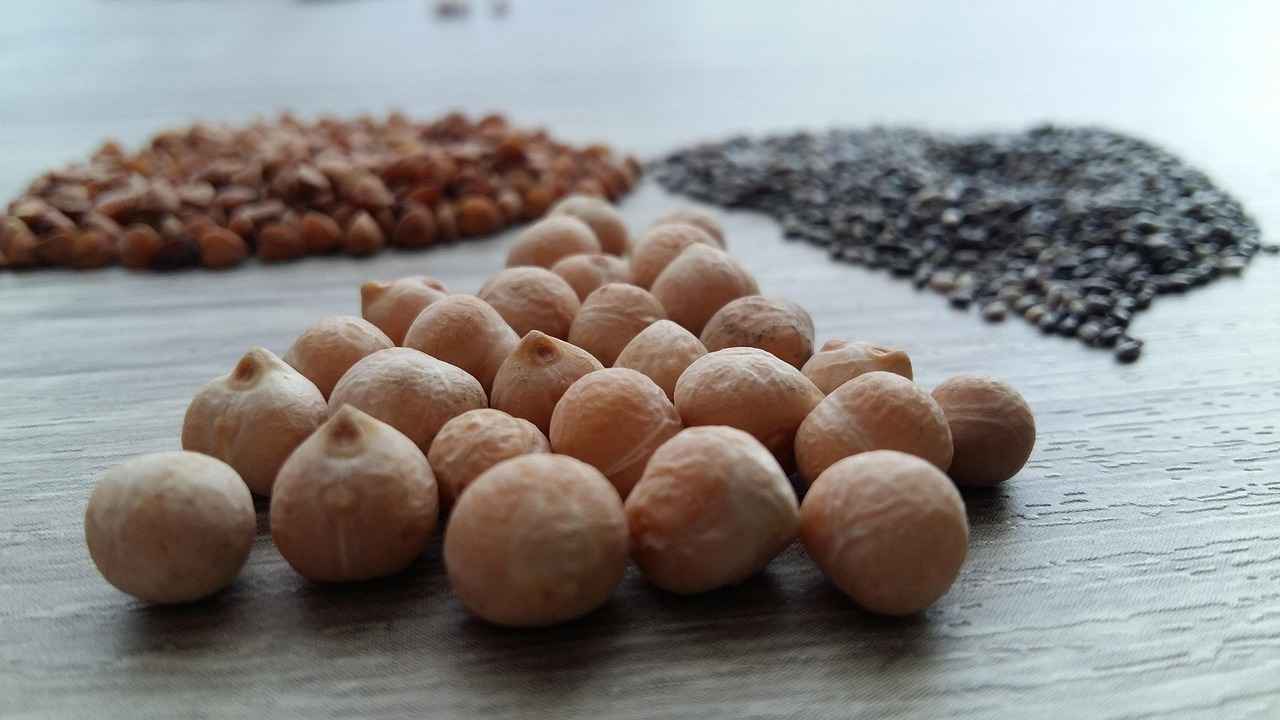
What Nutrients Are Found in Chia Seeds?
Chia seeds have emerged as a popular superfood, celebrated for their extraordinary health benefits. These tiny black and white seeds are derived from the Salvia hispanica plant, native to Mexico and Guatemala. They are not just a trendy addition to smoothies and salads; they are a powerhouse of essential nutrients that can significantly enhance your diet.
Chia seeds are packed with essential nutrients. They are rich in omega-3 fatty acids, fiber, protein, and various vitamins and minerals, making them a nutritious addition to any diet. Let’s delve deeper into their nutritional profile:
- Omega-3 Fatty Acids: Chia seeds are one of the best plant-based sources of omega-3 fatty acids, which are crucial for heart health and brain function. They contain alpha-linolenic acid (ALA), a type of omega-3 that can help reduce inflammation and improve cardiovascular health.
- Dietary Fiber: With about 11 grams of fiber per ounce, chia seeds are an excellent source of dietary fiber. This high fiber content aids in digestion, promotes a feeling of fullness, and helps regulate blood sugar levels.
- Protein: Chia seeds are a complete protein, containing all nine essential amino acids. They provide approximately 4 grams of protein per ounce, making them an excellent option for vegetarians and vegans looking to boost their protein intake.
- Vitamins and Minerals: These tiny seeds are also rich in essential vitamins and minerals, including calcium, magnesium, phosphorus, and manganese. These nutrients play vital roles in bone health, muscle function, and energy metabolism.
In addition to the above nutrients, chia seeds are low in calories, making them an excellent choice for those looking to maintain or lose weight. Their unique ability to absorb water and form a gel-like consistency can help keep you hydrated and satisfied.
Moreover, chia seeds are rich in antioxidants, which help combat oxidative stress and inflammation in the body. This can contribute to overall health and may reduce the risk of chronic diseases.
When considering adding chia seeds to your diet, it’s important to note that they can be consumed in various ways. They can be sprinkled on salads, blended into smoothies, or used as a thickening agent in recipes. Soaking them in water or milk before consumption can enhance their digestibility and nutrient absorption.
In summary, chia seeds are a nutrient-dense food that can provide a wide array of health benefits. Their combination of omega-3 fatty acids, fiber, protein, vitamins, and minerals makes them a valuable addition to a balanced diet. Whether you’re looking to enhance your health or simply add a nutritious element to your meals, chia seeds are an excellent choice.

How Do Chia Seeds Benefit Your Health?
Chia seeds are tiny black seeds that come from the plant Salvia hispanica, native to Mexico and Guatemala. These seeds have gained immense popularity in recent years due to their numerous health benefits and versatility in various recipes. In this section, we will explore how chia seeds can positively impact your health, focusing on their role in weight management, heart health, and digestive support.
One of the most notable benefits of chia seeds is their ability to assist in weight management. When chia seeds are consumed, they can absorb up to 12 times their weight in water, forming a gel-like substance in the stomach. This property helps to promote a sense of fullness, which can lead to reduced calorie intake throughout the day. Studies indicate that incorporating chia seeds into your diet may help you feel satisfied longer, potentially aiding in weight loss efforts.
Chia seeds are an excellent source of omega-3 fatty acids, which are essential for maintaining heart health. These healthy fats are known to lower inflammation and reduce triglyceride levels in the bloodstream, ultimately decreasing the risk of heart disease. Additionally, chia seeds are rich in antioxidants, which can help combat oxidative stress and support overall cardiovascular health. Regular consumption of chia seeds may contribute to improved cholesterol levels and lower blood pressure.
The high fiber content in chia seeds is another significant benefit. Just two tablespoons of chia seeds contain approximately 11 grams of fiber, which is essential for maintaining a healthy digestive system. Fiber helps to regulate bowel movements, prevent constipation, and promote a healthy gut microbiome. By incorporating chia seeds into your diet, you can support digestive health and improve nutrient absorption.
Beyond weight management, heart health, and digestive support, chia seeds offer a host of other health benefits:
- Bone Health: Chia seeds are rich in calcium, phosphorus, and magnesium, which are vital for maintaining strong bones.
- Blood Sugar Control: The soluble fiber in chia seeds can help stabilize blood sugar levels, making them a great option for individuals with diabetes.
- Energy Boost: Rich in protein and healthy fats, chia seeds can provide a sustained energy boost, making them an ideal snack for athletes.
Incorporating chia seeds into your meals is simple and versatile. Here are some practical ideas:
- Add chia seeds to smoothies for a nutritional boost.
- Mix them into yogurt or oatmeal for added texture and fiber.
- Use chia seeds as an egg substitute in baking by mixing them with water.
- Sprinkle them on salads or incorporate them into energy bars.
In summary, chia seeds are a powerhouse of nutrients that can significantly benefit your health. From aiding in weight management to supporting heart and digestive health, these tiny seeds pack a mighty punch. As with any food, moderation is key, so consider adding chia seeds to your diet gradually and enjoy their numerous health benefits.
Can Chia Seeds Aid in Weight Loss?
Chia seeds have become a popular addition to many diets, particularly for those seeking to manage their weight. Their unique properties make them an excellent choice for anyone looking to enhance their weight loss efforts.
One of the most notable characteristics of chia seeds is their ability to absorb water. When they come into contact with liquid, they can swell up to 12 times their original size. This remarkable expansion occurs in the stomach, creating a gel-like substance that can significantly promote a feeling of fullness. By consuming chia seeds before meals or incorporating them into dishes, individuals may find it easier to control their appetite, ultimately leading to a reduction in overall calorie intake.
Moreover, the high fiber content in chia seeds plays a crucial role in weight management. Each serving contains about 11 grams of fiber, which is essential for digestive health. Fiber not only aids in digestion but also helps to stabilize blood sugar levels, preventing the spikes and crashes that can lead to cravings. By keeping blood sugar levels steady, chia seeds can help individuals resist the temptation to snack on unhealthy options.
In addition to their appetite-suppressing qualities, chia seeds are low in calories, making them a smart choice for those looking to lose weight. A typical serving of chia seeds (about two tablespoons) contains approximately 138 calories, yet provides a wealth of nutrients, including protein and healthy fats. This nutrient density means that you can satisfy your hunger without consuming excessive calories.
How Can You Incorporate Chia Seeds into Your Diet? The versatility of chia seeds makes them easy to include in various meals. They can be added to smoothies, oatmeal, yogurt, or even baked goods. One popular method is to create a chia seed pudding by mixing them with almond milk and letting them sit overnight. This not only makes for a delicious and healthy breakfast but also helps you feel fuller for longer.
However, it is important to consume chia seeds with adequate water. Due to their high fiber content, ingesting them without sufficient hydration can lead to digestive discomfort, such as bloating or constipation. Therefore, it is advisable to drink plenty of water when incorporating chia seeds into your diet.
Are There Any Drawbacks? While chia seeds offer numerous benefits, moderation is key. Some individuals may experience digestive issues if they consume too many seeds at once. It is generally recommended to start with a small amount and gradually increase your intake to assess your body’s response.
In conclusion, chia seeds can be a valuable ally in your weight loss journey. Their ability to absorb water and expand in the stomach, coupled with their high fiber content, can help control appetite and reduce calorie intake. By incorporating them into a balanced diet and staying hydrated, you can enjoy their benefits while working towards your weight management goals.
What Role Does Fiber Play?
Fiber is an essential component of a balanced diet, and its role in health cannot be overstated. In the context of chia seeds, the high fiber content serves multiple functions that contribute significantly to overall well-being.
The fiber found in chia seeds is primarily soluble, which means it can absorb water and form a gel-like substance in the digestive tract. This property aids in regulating digestion by promoting regular bowel movements and preventing constipation. The gel-like consistency helps to slow down the digestion process, allowing for better nutrient absorption. Additionally, the fiber acts as a prebiotic, fostering the growth of beneficial gut bacteria, which is essential for a healthy digestive system.
Another significant benefit of the fiber in chia seeds is its ability to help maintain steady blood sugar levels. By slowing the absorption of sugar into the bloodstream, fiber can prevent spikes and crashes in blood glucose levels. This is particularly beneficial for individuals managing diabetes or those at risk of developing the condition. Incorporating chia seeds into meals can help create a more balanced glycemic response, making them a smart addition to your diet.
High-fiber foods like chia seeds can play a crucial role in weight management. The expansion of chia seeds in the stomach contributes to a prolonged feeling of fullness, which can reduce overall calorie intake. When you consume chia seeds, they absorb liquid and swell, creating a sense of satiety that may help curb unnecessary snacking between meals. This natural appetite control mechanism can be particularly advantageous for those looking to lose or maintain weight.
Beyond digestive health and blood sugar regulation, fiber offers numerous other health benefits. It can help lower cholesterol levels, reduce the risk of heart disease, and even promote healthy skin by aiding in detoxification. The antioxidants present in chia seeds, combined with their fiber content, can also contribute to reducing inflammation in the body, further supporting cardiovascular health.
Incorporating chia seeds into your diet is simple and versatile. They can be added to smoothies, sprinkled on salads, mixed into yogurt, or used as an egg substitute in baking. For a nutritious breakfast, consider making a chia seed pudding by soaking them overnight in milk or a dairy-free alternative. This not only enhances the seeds’ digestibility but also allows you to enjoy their health benefits in a delicious way.
Health experts recommend that adults consume between 25 to 30 grams of fiber daily. Including chia seeds in your diet can significantly contribute to this goal, as just two tablespoons of chia seeds contain approximately 10 grams of fiber. However, it is essential to gradually increase fiber intake and drink plenty of water to avoid digestive discomfort.
In summary, the high fiber content in chia seeds plays a pivotal role in promoting digestive health, regulating blood sugar levels, and supporting weight management. By incorporating these tiny seeds into your diet, you can enjoy their numerous health benefits while enhancing your overall nutritional profile.
Are There Heart Health Benefits?
Chia seeds have emerged as a popular health food, known for their numerous health benefits, particularly concerning heart health. One of the standout features of chia seeds is their high content of omega-3 fatty acids. These essential fats play a crucial role in maintaining cardiovascular health by combating inflammation and helping to regulate cholesterol levels.
Omega-3 fatty acids are a type of polyunsaturated fat that is vital for the body. They are known to support various bodily functions, including heart health. Chia seeds are an excellent plant-based source of omega-3s, particularly in the form of alpha-linolenic acid (ALA). This is important for those who may not consume enough omega-3s from fish or other animal sources.
- Reducing Inflammation: Chronic inflammation is a key contributor to heart disease. Omega-3 fatty acids help reduce inflammation in the body, potentially lowering the risk of heart-related issues.
- Lowering Cholesterol Levels: Studies suggest that omega-3s can help lower levels of LDL (bad) cholesterol while increasing HDL (good) cholesterol. This balance is essential for maintaining a healthy heart.
- Improving Blood Vessel Function: Omega-3s can enhance the function of blood vessels, promoting better circulation and reducing the risk of blood clots.
In addition to omega-3 fatty acids, chia seeds are also rich in other nutrients that support heart health:
- Fiber: The high fiber content in chia seeds aids in digestion and helps maintain healthy cholesterol levels.
- Antioxidants: Chia seeds are packed with antioxidants that protect the heart by combating oxidative stress.
- Minerals: Essential minerals such as magnesium and calcium found in chia seeds contribute to overall cardiovascular function.
Incorporating chia seeds into your diet is easy and versatile. Here are some practical ways to enjoy them:
- Add chia seeds to your smoothies for an extra nutrient boost.
- Sprinkle them on yogurt or oatmeal for added texture and health benefits.
- Use chia seeds in baking recipes, such as muffins or bread, to enhance nutritional value.
While chia seeds are generally safe for most people, it’s important to consume them in moderation. Due to their high fiber content, consuming excessive amounts may lead to digestive discomfort. Always ensure you drink plenty of water when consuming chia seeds to aid digestion.
In summary, chia seeds are a powerhouse of nutrients, especially omega-3 fatty acids, which are essential for maintaining heart health. By incorporating these tiny seeds into your diet, you can enjoy their numerous benefits while supporting your cardiovascular system.
How Can You Incorporate Chia Seeds into Your Diet?
Incorporating chia seeds into your meals is not only simple but also a fantastic way to enhance your diet with their numerous health benefits. These tiny seeds are versatile and can be added to a variety of dishes, making them an excellent choice for anyone looking to improve their nutritional intake.
One of the easiest ways to enjoy chia seeds is by adding them to smoothies. Just a tablespoon of chia seeds can boost the fiber and protein content of your favorite smoothie. They blend well with fruits, greens, and liquids, providing a creamy texture without altering the taste. For a refreshing breakfast option, consider blending spinach, banana, almond milk, and a spoonful of chia seeds for a nutrient-packed start to your day.
Yogurt is another perfect match for chia seeds. You can mix them into your yogurt for added crunch and nutritional value. For a delicious treat, try making a chia seed pudding by combining yogurt, chia seeds, and your favorite sweetener. Let it sit overnight in the refrigerator, and in the morning, you’ll have a delightful breakfast ready to go.
When it comes to oatmeal, chia seeds can serve as a great topping or be cooked directly into the oats. Adding chia seeds to your oatmeal not only increases its protein content but also adds a satisfying texture. For a tasty twist, try mixing in fruits, nuts, and a drizzle of honey to create a hearty meal that will keep you full for hours.
| Meal | Chia Seed Use |
|---|---|
| Smoothies | Blend in for added nutrition |
| Yogurt | Mix in or make a pudding |
| Oatmeal | Cook in or top with seeds |
| Baked Goods | Substitute for eggs or add to recipes |
Baked goods are another excellent way to incorporate chia seeds. You can use chia seeds as a substitute for eggs in vegan recipes by mixing them with water, allowing them to gel and create a binding effect. They can also be added to muffins, bread, or pancakes, enhancing both the nutritional profile and texture of your baked treats.
For a quick snack, consider making chia seed energy bars. Combine oats, nut butter, honey, and chia seeds, press the mixture into a pan, and refrigerate until firm. Cut them into bars for a convenient on-the-go snack that provides sustained energy.
Lastly, chia seeds can be sprinkled on salads or incorporated into dressings for an extra crunch. They add a nutty flavor that complements various salad ingredients, making your meals not only healthier but also more enjoyable.
In summary, the possibilities for incorporating chia seeds into your diet are virtually endless. Whether you mix them into smoothies, yogurt, oatmeal, or baked goods, these seeds are an easy and nutritious addition to any meal. Their versatility allows you to experiment and find what works best for your palate, ensuring that you reap the many health benefits they offer.
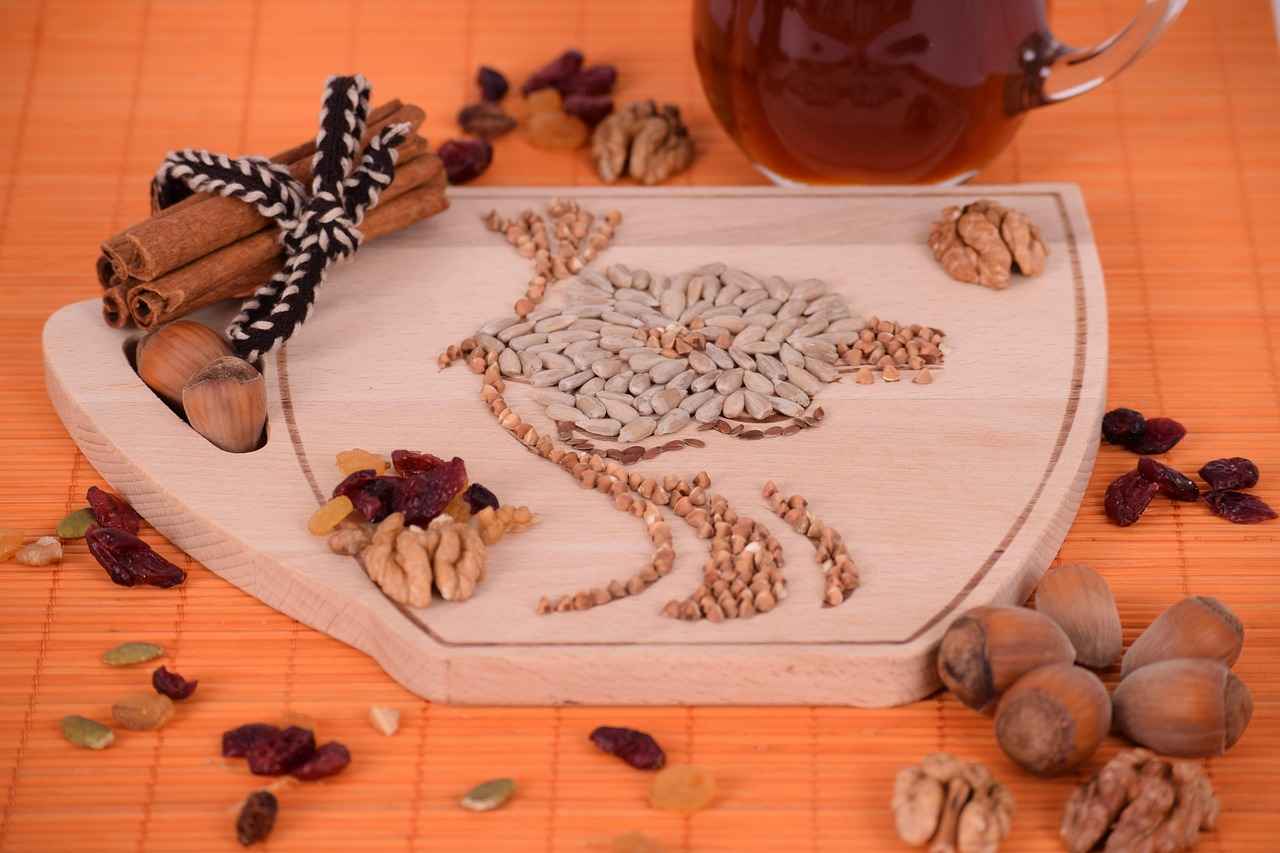
What Are the Potential Side Effects of Chia Seeds?
Chia seeds have gained immense popularity as a superfood, celebrated for their numerous health benefits. However, like many foods, they come with potential side effects that consumers should be aware of. Understanding these side effects is crucial for anyone looking to incorporate chia seeds into their diet.
While chia seeds offer a variety of health benefits, including high fiber content and omega-3 fatty acids, some individuals may experience adverse effects. It is essential to consume them in moderation to avoid complications.
Chia seeds are known for their ability to absorb water and expand, which can lead to digestive discomfort if not consumed correctly. Some common digestive issues include:
- Bloating: Overconsumption can lead to excess gas and bloating.
- Constipation: If not paired with sufficient fluids, the high fiber content may cause constipation.
- Abdominal Pain: Some individuals report cramping or discomfort after consuming large amounts.
To mitigate these issues, it is recommended to start with small servings and gradually increase your intake while ensuring adequate hydration.
Though rare, some people may experience allergic reactions to chia seeds. Symptoms can include:
- Skin Reactions: Rashes or hives may develop.
- Respiratory Issues: Difficulty breathing or wheezing can occur in sensitive individuals.
- Gastrointestinal Symptoms: Nausea or vomiting may manifest as part of an allergic response.
If you suspect an allergy, it is crucial to consult with a healthcare professional before including chia seeds in your diet.
To enjoy the benefits of chia seeds while minimizing potential side effects, consider the following tips:
- Start Slowly: Introduce chia seeds gradually into your diet to allow your body to adjust.
- Stay Hydrated: Drink plenty of water to aid digestion and prevent constipation.
- Mix with Other Foods: Incorporate chia seeds into smoothies, yogurt, or oatmeal to balance their effects.
Moderation is key when it comes to chia seeds. The recommended serving size is typically around 1 to 2 tablespoons per day. This amount provides the health benefits without overwhelming your digestive system.
Certain individuals may be more susceptible to the side effects of chia seeds, including:
- Individuals with Digestive Disorders: Those with conditions like irritable bowel syndrome (IBS) should exercise caution.
- Pregnant or Nursing Women: Consultation with a healthcare provider is advised before introducing chia seeds.
- People on Blood Thinners: Due to the omega-3 content, chia seeds may interact with blood-thinning medications.
In summary, while chia seeds are a nutritious addition to many diets, being aware of their potential side effects can help you enjoy their benefits safely. Always listen to your body and consult with a healthcare professional if you have any concerns.
Can Chia Seeds Cause Digestive Issues?
Chia seeds have become a popular addition to many diets due to their impressive nutrient profile and health benefits. However, it’s important to be aware of potential digestive issues that can arise from their consumption. In this section, we will explore how chia seeds can affect your digestive system and what precautions you should take.
Chia seeds are incredibly high in fiber, with approximately 10 grams of fiber per ounce. While fiber is essential for maintaining good digestive health, an excessive intake—especially from sources like chia seeds—can lead to some uncomfortable side effects. Here are some key points to consider:
- Bloating: When consumed in large quantities, chia seeds can absorb a significant amount of water, expanding in your stomach. This expansion can lead to feelings of bloating and discomfort.
- Gas: The fermentation of fiber in the gut can produce gas, leading to discomfort. Some individuals may be more sensitive to this than others.
- Constipation: Although fiber aids in digestion, not drinking enough water when consuming chia seeds can lead to constipation. The seeds can absorb water and swell, making it crucial to stay hydrated.
To mitigate these issues, it is essential to consume chia seeds in moderation. A general recommendation is to start with 1-2 tablespoons of chia seeds per day and gradually increase the amount as your body adjusts. Additionally, always ensure you are drinking adequate amounts of water throughout the day to help the fiber do its job effectively.
Another important aspect to consider is how you prepare chia seeds. Soaking them in water or adding them to smoothies can help them expand before they reach your stomach, reducing the risk of digestive discomfort. This method allows the seeds to absorb liquid and become gelatinous, making them easier to digest.
For those who are new to chia seeds, it may be beneficial to keep a food diary to monitor any reactions after consumption. If you notice consistent digestive issues, it may be wise to consult with a healthcare professional or a registered dietitian.
In summary, while chia seeds offer numerous health benefits, it’s crucial to be mindful of their high fiber content and potential digestive side effects. By consuming them in moderation, staying hydrated, and preparing them properly, you can enjoy the advantages of chia seeds without the discomfort.
Are There Allergies Associated with Chia Seeds?
Chia seeds are often celebrated for their numerous health benefits, but as with any food, it is essential to consider potential allergic reactions. While allergies to chia seeds are rare, they can occur and may lead to various symptoms that could be uncomfortable or even serious for some individuals.
Chia seeds belong to the mint family and are known for their high nutritional value. However, for a small percentage of the population, exposure to chia seeds can trigger an allergic response. This can be particularly concerning for those with existing allergies to other seeds, such as sesame or flaxseed, as they may have a higher likelihood of reacting to chia seeds as well.
Individuals who are allergic to chia seeds may experience a range of symptoms. These can include:
- Skin Reactions: Hives, rashes, or eczema may develop upon contact or consumption.
- Gastrointestinal Issues: Symptoms like nausea, vomiting, or diarrhea can occur shortly after ingestion.
- Respiratory Problems: Some may experience difficulty breathing, wheezing, or nasal congestion.
- Anaphylaxis: In severe cases, an allergy can lead to anaphylactic shock, a life-threatening condition that requires immediate medical attention.
If you are considering introducing chia seeds into your diet, it is crucial to monitor your body’s response. Start with a small amount and observe any changes. If you notice any adverse effects, discontinue use and consult with a healthcare professional. Keeping a food diary can also help track your reactions over time.
People with a history of food allergies, particularly those related to seeds, should approach chia seeds with caution. Additionally, individuals with atopic dermatitis or other allergic conditions may be more susceptible. It is advisable for these individuals to consult with an allergist before adding chia seeds to their diet.
For those diagnosed with a chia seed allergy, the most effective management strategy is to avoid chia seeds entirely. Always read ingredient labels carefully, as chia seeds can be found in various products, from health bars to smoothies. Informing friends and family about your allergy can also help prevent accidental exposure.
If you are allergic to chia seeds but still want to enjoy similar nutritional benefits, consider alternatives such as:
- Flaxseeds: Rich in omega-3 fatty acids and fiber, flaxseeds are a great substitute.
- Hemp Seeds: These seeds provide a good source of protein and healthy fats.
- Sunflower Seeds: A versatile option that can add crunch to various dishes.
In conclusion, while chia seeds offer numerous health benefits, it is essential to remain vigilant regarding potential allergies. By understanding the symptoms and risks associated with chia seeds, you can make informed dietary choices. Always consult with a healthcare provider if you suspect an allergy, and prioritize your health and well-being when incorporating new foods into your diet.
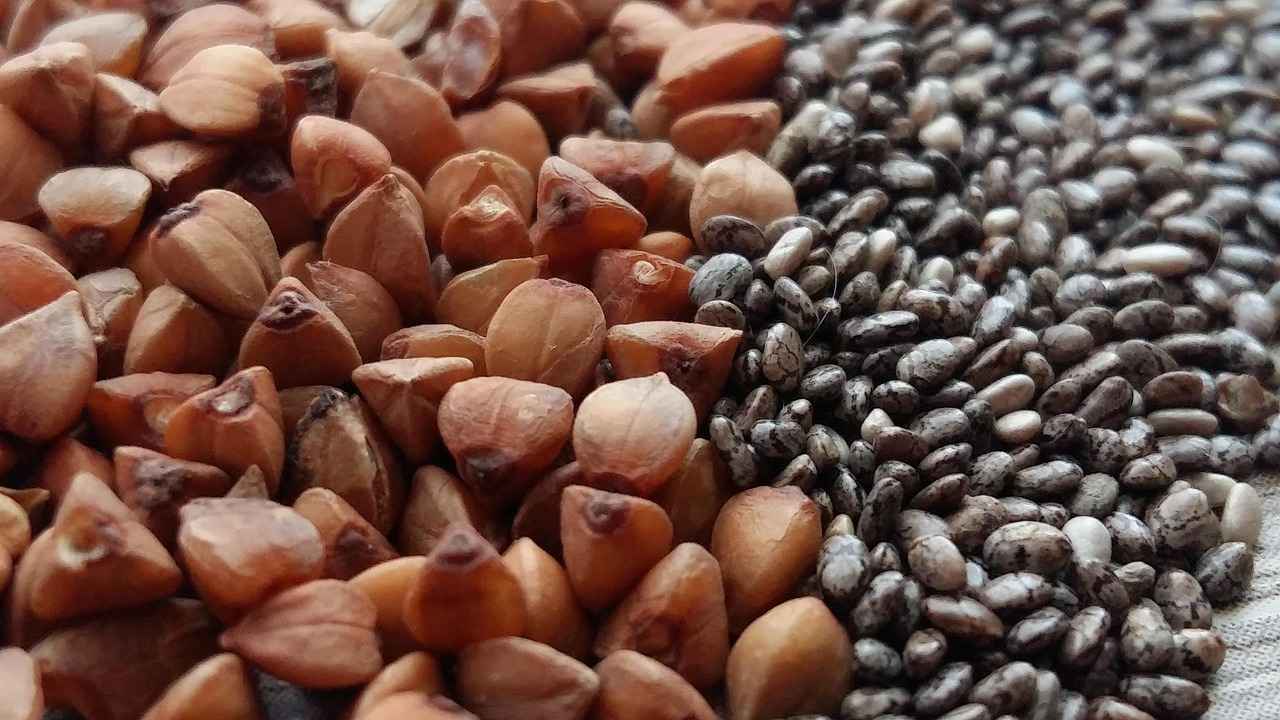
How Should Chia Seeds Be Stored?
When it comes to incorporating chia seeds into your diet, understanding the importance of proper storage is crucial. These tiny seeds are not only packed with nutrients but also have a relatively long shelf life if stored correctly. In this section, we will explore the best practices for storing chia seeds to ensure they maintain their freshness and nutritional value.
Chia seeds are highly sensitive to environmental factors such as light, heat, and moisture. If not stored properly, they can lose their beneficial properties and become less effective as a health supplement. To keep them fresh, it’s essential to follow these guidelines:
- Keep Them Cool: Store chia seeds in a cool environment, ideally at temperatures below 70°F (21°C). This helps to prevent the oils in the seeds from going rancid.
- Airtight Containers: Use an airtight container to minimize exposure to air, which can degrade the quality of the seeds. Glass jars or plastic containers with tight-fitting lids work well.
- Dark Storage: Light can also affect the integrity of chia seeds. Store them in a dark cupboard or pantry to shield them from light exposure.
- Check Expiration Dates: Always keep an eye on the expiration date when purchasing chia seeds. Even when stored correctly, they have a shelf life of about 2 years.
Yes, you can freeze chia seeds to extend their shelf life further. Freezing helps lock in their freshness and nutritional benefits. Place the seeds in an airtight freezer-safe bag or container, and they can last for several years in the freezer. Just remember to let them thaw before using them in recipes.
If chia seeds are exposed to air, moisture, or light, they can develop a rancid smell and taste. This not only affects their flavor but also diminishes their nutritional value. Consuming spoiled seeds can lead to digestive issues, which is why proper storage is vital.
To ensure your chia seeds are still good to eat, check for the following signs:
- Smell: Fresh chia seeds have a mild, nutty aroma. If they smell rancid or off, it’s best to discard them.
- Appearance: Look for any discoloration or clumping. Fresh seeds should be uniform in color and texture.
- Taste: If you are uncertain, taste a small amount. They should have a neutral, slightly nutty flavor. A bitter or unpleasant taste indicates spoilage.
In summary, proper storage of chia seeds is essential for maintaining their freshness and nutritional value. By keeping them in a cool, dark place, ideally in an airtight container, you can enjoy their numerous health benefits for a longer period. Whether you choose to store them in your pantry or freezer, following these guidelines will ensure that your chia seeds remain a nutritious addition to your diet.
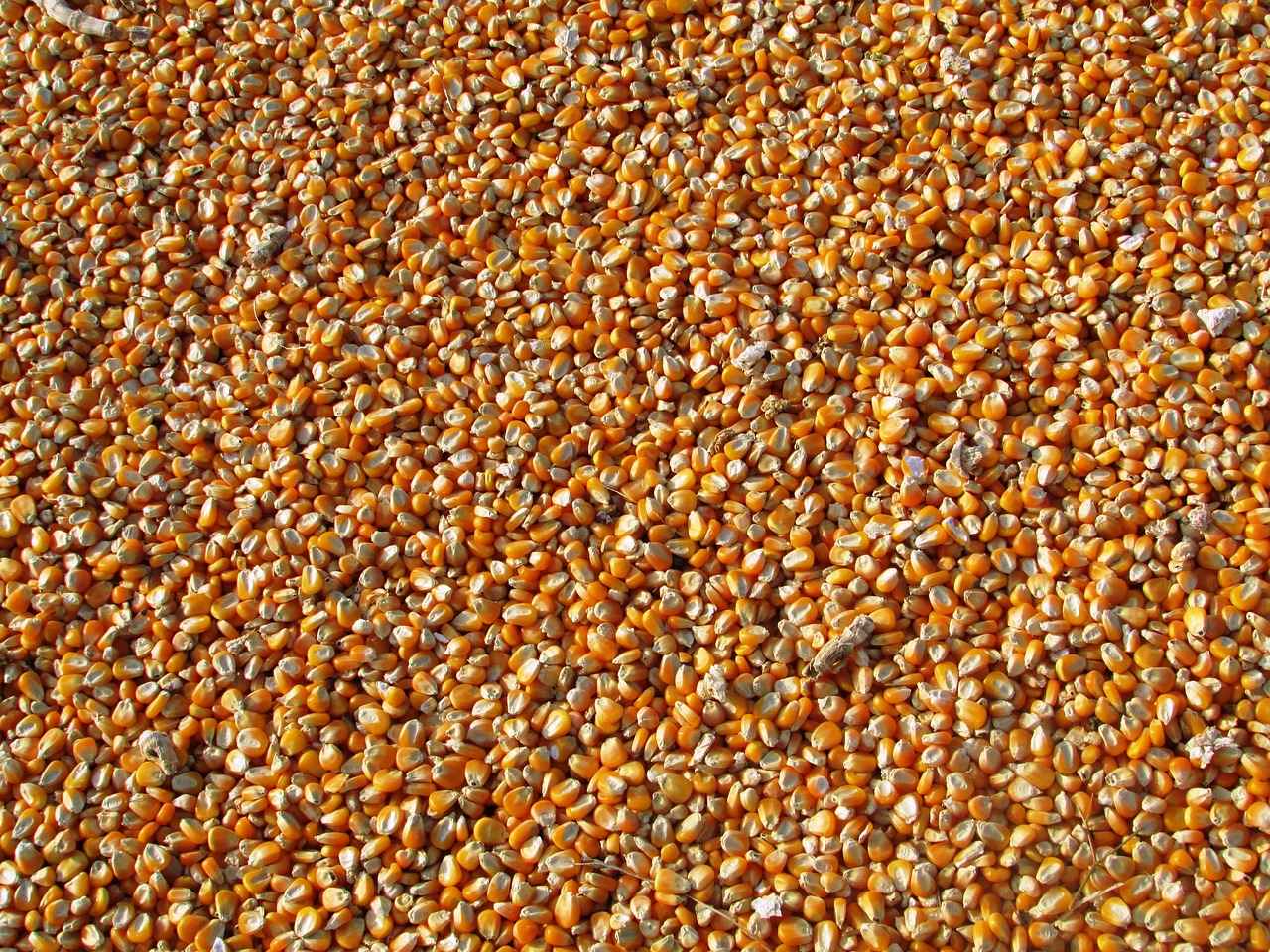
What Are Some Popular Chia Seed Recipes?
Chia seeds have become a staple in many kitchens due to their versatility and nutritional benefits. These tiny seeds can be incorporated into a variety of dishes, making them an excellent addition to your diet. Whether you are looking to create a healthy breakfast, a nutritious snack, or even a dessert, chia seeds can be the perfect ingredient.
Starting your day with chia seeds can be both satisfying and healthy. Here are some popular breakfast ideas:
- Chia Seed Pudding: Combine chia seeds with your choice of milk (dairy or plant-based) and let them soak overnight. Add sweeteners like honey or maple syrup and top with fruits and nuts for a delicious morning treat.
- Chia Smoothies: Blend chia seeds into your morning smoothie for an added boost of fiber and omega-3 fatty acids. They pair well with fruits like bananas, berries, and spinach.
- Overnight Oats: Mix chia seeds with oats, yogurt, and your favorite toppings. Let the mixture sit overnight in the fridge for a quick and nutritious breakfast.
Chia seeds can also be used to create healthy snacks that keep you energized throughout the day:
- Energy Bars: Combine chia seeds with oats, nut butter, and dried fruits to create homemade energy bars. These are perfect for on-the-go snacking.
- Chia Seed Crackers: Mix chia seeds with whole grain flour and water to form a dough. Bake until crispy for a healthy alternative to store-bought crackers.
- Fruit and Chia Seed Parfaits: Layer yogurt, fresh fruits, and chia seeds in a glass for a visually appealing and nutritious snack.
Absolutely! Chia seeds can be a fantastic addition to baked goods:
- Chia Seed Bread: Incorporate chia seeds into your bread recipes for added texture and nutrition. They can help retain moisture in the bread.
- Muffins and Pancakes: Add chia seeds to your muffin or pancake batter for a healthy twist. They can enhance the fiber content and provide a slight crunch.
Chia seeds can also shine in dessert recipes, offering a nutritious alternative to traditional ingredients:
- Chia Seed Jam: Combine chia seeds with mashed fruits and a sweetener to create a healthy jam that can be spread on toast or used in desserts.
- Chocolate Chia Seed Pudding: Mix chia seeds with cocoa powder, sweetener, and milk for a rich, chocolatey treat that’s guilt-free.
In conclusion, chia seeds are an incredibly versatile ingredient that can enhance your culinary experience. From breakfast to dessert, incorporating chia seeds into your meals not only boosts their nutritional value but also adds unique textures and flavors. So, why not experiment with these ideas and discover the endless possibilities of chia seeds in your kitchen?
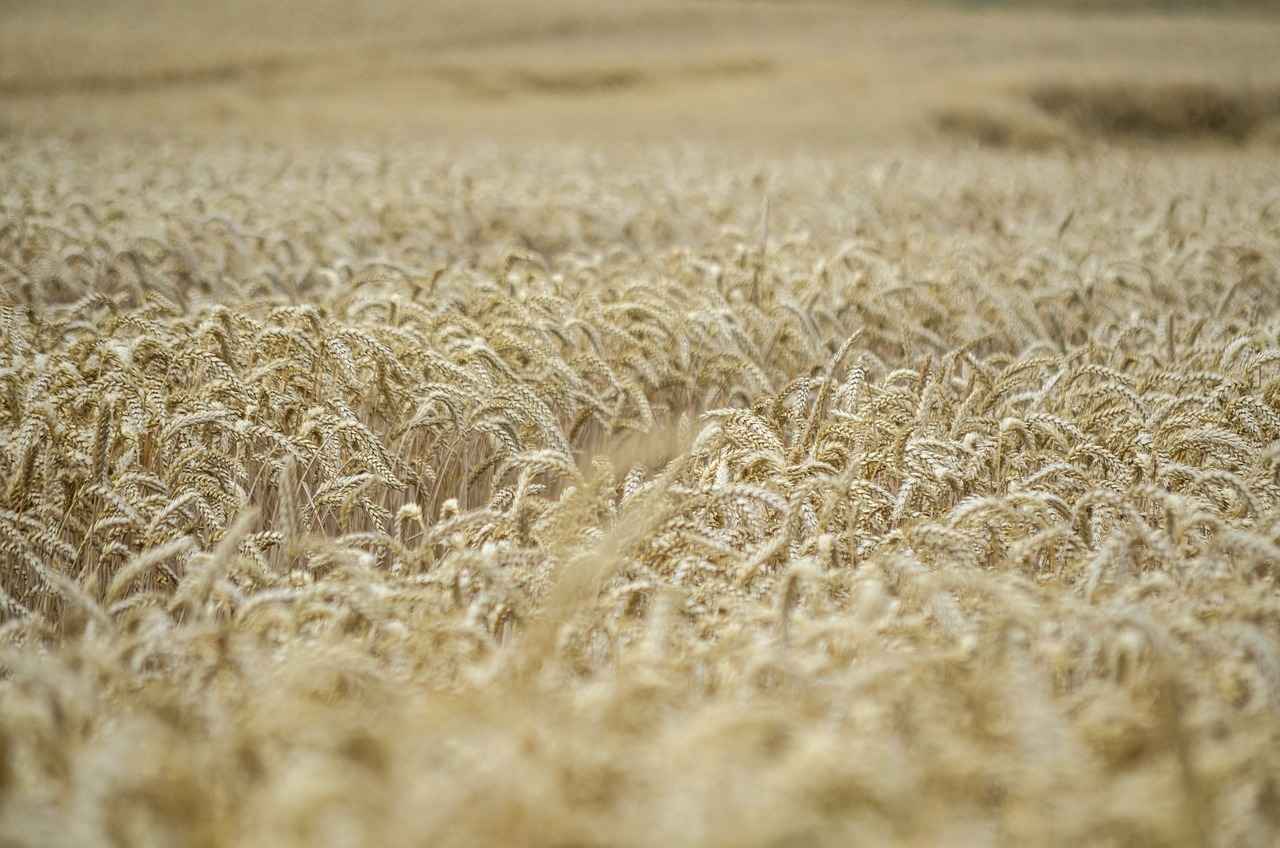
Where Can You Buy Chia Seeds?
Chia seeds have become a staple in health-conscious diets, but knowing where to find them is crucial for anyone looking to incorporate these nutrient-dense seeds into their meals. In this section, we will explore various places to buy chia seeds, focusing on the importance of quality and the best purchasing options available.
Chia seeds are widely available in a variety of locations, making them accessible to most consumers. Here are the primary avenues to consider:
- Grocery Stores: Many mainstream grocery stores now carry chia seeds, often found in the health food aisle or near other grains and seeds. Look for brands that emphasize organic and non-GMO options to ensure quality.
- Health Food Stores: Specialty health food stores typically offer a broader selection of chia seeds, including various brands and packaging sizes. These stores often prioritize high-quality products, making them a great choice for health enthusiasts.
- Online Retailers: The internet provides a convenient option for purchasing chia seeds. Websites like Amazon, Thrive Market, and various health-focused online shops offer a wide range of options. When buying online, check for customer reviews and ratings to gauge the quality of the seeds.
- Farmers’ Markets: For those who prefer local sourcing, farmers’ markets can be an excellent place to find chia seeds. Local vendors may offer organic seeds and can provide insights into their farming practices.
- Bulk Food Stores: Stores that sell products in bulk often have chia seeds available at competitive prices. Buying in bulk not only saves money but also reduces packaging waste, making it an eco-friendly option.
When purchasing chia seeds, it is essential to choose high-quality options to maximize their nutritional benefits. Here are some factors to consider:
- Organic Certification: Opt for organic chia seeds to avoid pesticides and other harmful chemicals. Organic seeds are typically grown in healthier soils, enhancing their nutrient profile.
- Freshness: Check the expiration date on packaging. Chia seeds can last a long time, but their nutritional quality diminishes over time. Choose seeds that are as fresh as possible.
- Packaging: Look for seeds that are packaged in airtight containers to prevent moisture and light exposure, which can degrade their quality.
To ensure you are getting the best chia seeds, consider the following:
- Color and Texture: High-quality chia seeds should be shiny and have a consistent color. Avoid seeds that appear dull or have an unusual texture.
- Brand Reputation: Research brands before purchasing. Established brands with positive reviews are more likely to offer high-quality products.
- Price: While it can be tempting to go for the cheapest option, remember that quality often correlates with price. Investing in better-quality seeds can lead to greater health benefits.
In summary, chia seeds can be easily found in grocery stores, health food shops, online retailers, and even local farmers’ markets. When purchasing, prioritize high-quality options to ensure you are reaping the full benefits of these nutritional powerhouses. By taking the time to choose the right seeds, you can enhance your diet and overall health.
Frequently Asked Questions
- What are chia seeds?
Chia seeds are tiny black or white seeds from the Salvia hispanica plant, known for their impressive nutritional profile. They are often hailed as a superfood due to their high content of omega-3 fatty acids, fiber, and protein.
- How can I use chia seeds in my diet?
You can easily incorporate chia seeds into your meals! Add them to smoothies, sprinkle on yogurt, mix into oatmeal, or even use them in baking. They can also be soaked in water to create a gel-like consistency for puddings.
- Are there any side effects of eating chia seeds?
While chia seeds are generally safe, consuming them in large quantities without enough water can lead to digestive issues like bloating or constipation. It’s best to start with small amounts and increase gradually.
- Where can I buy high-quality chia seeds?
You can find chia seeds in most grocery stores, health food shops, and online retailers. Look for organic options to ensure you’re getting the best quality!
- How should I store chia seeds?
To keep chia seeds fresh, store them in a cool, dark place in an airtight container. This helps maintain their nutritional value and prevents them from going rancid.
